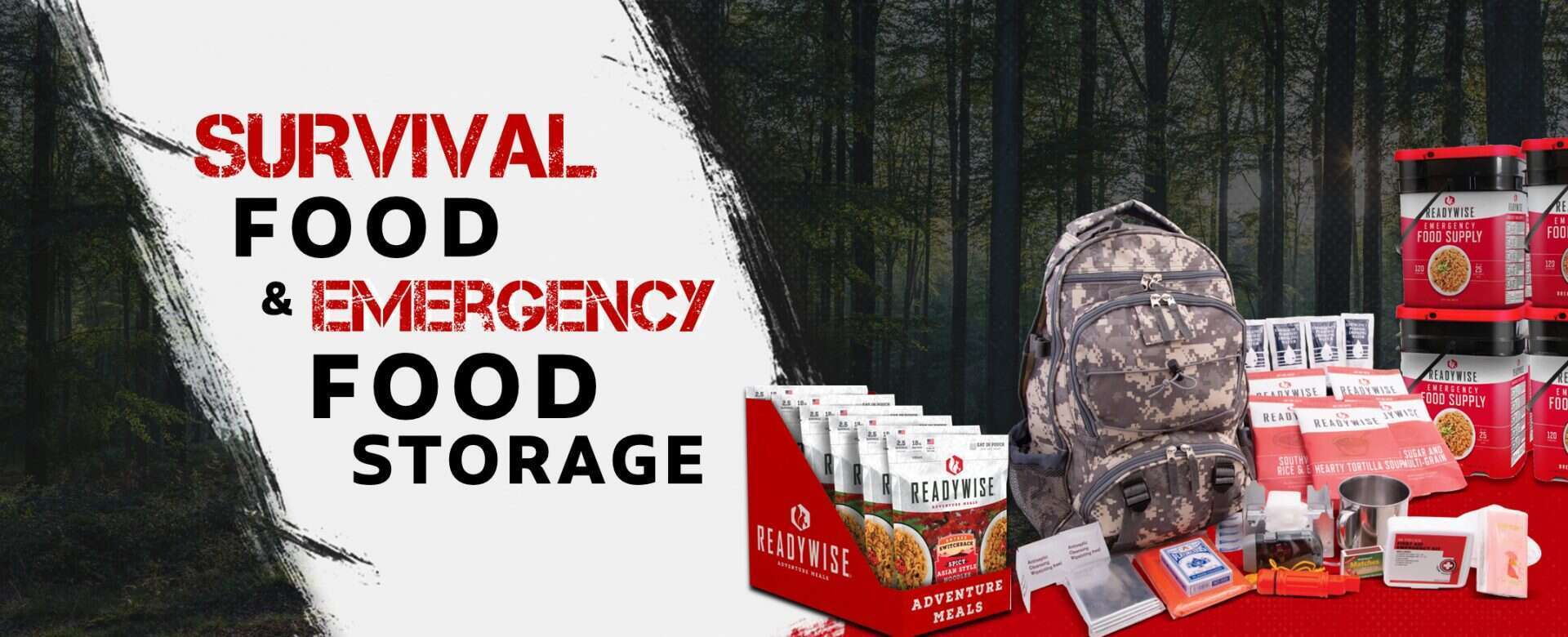
Emergency Food Storage
Emergency Food Storage is essential for survival in the event of a disaster. It is important to have an adequate supply of food on hand to ensure that you and your family are prepared for any emergency situation. This article will discuss some of the most frequently asked questions about survival food and emergency food storage, including what types of foods should be stored and how long they can last. We will also cover the various methods for storing survival food, as well as tips on how to maximize shelf life. With this information, you will be better equipped to make informed decisions about your emergency food storage needs.
Get a complete meal in a can with all the essential nutrients you need.
Protein or fruit bars to give you that quick boost when you need it; great for snack time!
Mornings made easy with dry cereals and granola; keep your energy levels up with peanut butter.
Dried fruits, canned juices, and non-perishable pasteurized milk for on-the-go snacks.
Packed with high energy to fuel your day!
Canned and freeze-dried foods are your new favorites. So are properly-stored whole wheat cereals, nuts, dry pasta, corn, and various other dry edibles. To further build out your pantry, focus on high-energy options like peanut butter, jelly, granola bars, and trail mix.
To prepare, pack at least 2,000 calories of food per adult per day. In addition, pack at least one gallon of water per person per day for drinking and sanitation in clean plastic containers.
Champagne will be in short supply in 2023, not just because of the drought, but because demand has rebounded from the pandemic faster than producers can create the bubbly beverage. Butter, corn, tomatoes and eggs are also on the list of potential shortages, as well as baby formula.
Canned Vegetables, Such as Green Beans, Carrots, and Peas
To pack in as many healthy vitamins and minerals as possible, order a case of mixed vegetable cans from Libby’s. Inside each can, you’ll find peas, carrots, corn, lima beans, and green beans, giving you a well-balanced meal straight from the jar.Jan 17, 2023
Dried beans, oats, frozen poultry, peanut butter and frozen fruits and vegetables are some examples of nutritious items that have long shelf lives. These foods can be stored in the pantry, freezer or fridge for many months, which is why purchasing them in bulk is a smart choice.
Make sure you have:
the stock of long-term storage products;
drinking and technical water;
first aid kit;
cash;
flashlights, spare batteries or accumulators for them, candles;
gas burner with extra cylinders for cooking;
fire extinguisher;
warm blankets, sleeping bags, thermal underwear (in case of the cold season);
Though not an end-all test, a quick way to read the percent daily values is to use the 5/20 rule. This says that if the %DV is less than 5% there is a low amount of this nutrient, while if the %DV is greater than 20% there is a high amount of this nutrient.
Canned Food and Pet Food
COVID-19, labor shortages, the Russo-Ukrainian War, increased demand, and the ongoing supply chain crisis are all to blame. And we will probably have no end in sight until 2023, when the world hopefully moves back towards normalcy after all these crises.
Most shelf-stable foods are safe indefinitely. In fact, canned goods will last for years, as long as the can itself is in good condition (no rust, dents, or swelling). Packaged foods (cereal, pasta, cookies) will be safe past the ‘best by’ date, although they may eventually become stale or develop an off flavor.
An open jar of peanut butter stays fresh up to three months in the pantry. After that, it’s recommended to store the peanut butter in the fridge (where it can maintain its quality for another 3-4 months). If you don’t refrigerate, oil separation can occur.

